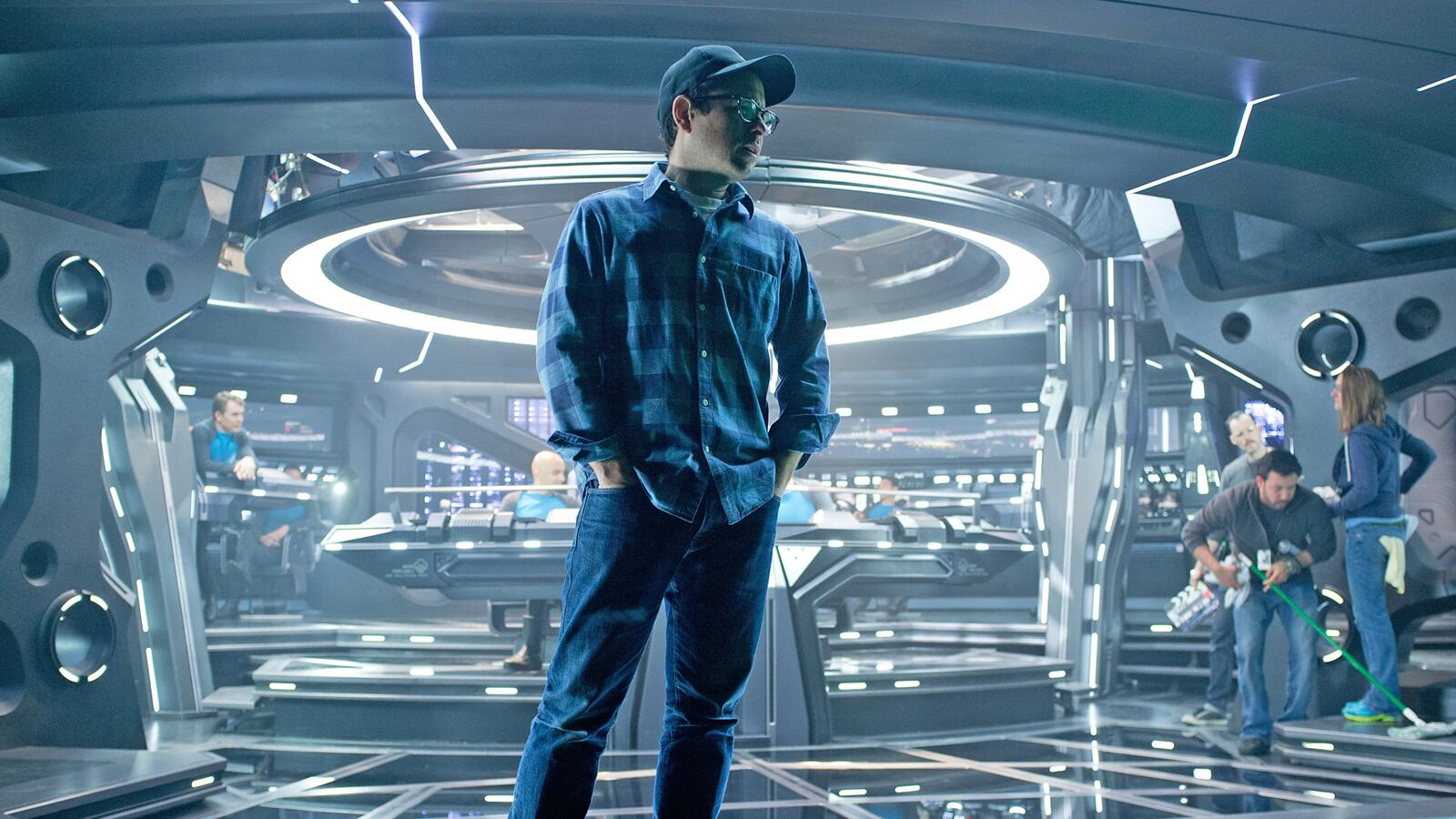Star Trek is not Star Wars. Star Trek is an intellectual exploration of humanity. Star Wars slaps spaceships and toys on pulp stories with themes of good versus evil and destiny. Star Trek and Star Wars are science fiction, granted. Both titles contain the word “star.”

The man at the helm of the Star Trek reboot is making the seventh installment of Star Wars. The same guy controls over four decades' worth of intergalactic pop culture. The Greek chorus of geeks, ignored by Hollywood for seven years between Star Wars Episode III: Revenge of the Sith and Star Trek, should be mad as hell. J.J. Abrams is genre bogarting.
It doesn’t take Vulcan logic to understand that Abrams was chosen because Hollywood is lazy. It’s nothing against him, sort of. He’s proven himself to be an adequate maker of smart, well-paced, utilitarian summer blockbusters: a super-engineered movie that makes you smile, but ultimately leaves you feeling hollow and unsatisfied (The Avengers, The Dark Knight Rises, and now Star Trek Into Darkness).
So where are the angry trekkies, surreptitiously stewing because the establishment has swooped down and bastardized everything they held dear? Maybe they’ll ignore Into Darkness. Or maybe they’ll watch with minimal expectations. As an exasperated NewsBeast editor (who asked to remain anonymous) laments: “They’re killing what we love.”
AAAAAAABRRAAAAAMS!
My mission to find these upset nerd hearts begins in a deep, dark world: the Star Trek message boards. Bonnie Malmat, editor at TrekToday.com, likes the original series from 1966 (Deep Space Nine is a close second). “I know my boards,” she says, in a comforting voice. Malmat isn’t bothered by Abrams. The franchise has endured, she says. Like the Vulcans, who lost 6 billion in a planetary genocide, Star Trek will survive.
NYU psychologist Ali Mattu, a diehard Deep Space Nine fan, readily admits that he used to pretend to ride the speeder bike from Return of the Jedi—while on his couch. Mattu felt a “cognitive dissonance” when he heard of Abrams’s impending foray into Star Wars. He was pissed off at the director’s overextension, but knew both franchises were in decent hands.
“J.J. made the universe cool. He made it sexy, exciting, sleek,” he says. “The bridge of the Enterprise looks like an Apple store.” But there is a slight disturbance in the Force: Mattu’s holding out for Star Trek’s signature meaty, cerebral punch to come out in the sequels.
Uh oh. Star Trek Into Darkness has lots of gunfights. Big monsters. Themed planets. “Abrams made a pretty good Star Wars movie, it just happened to be called Star Trek,” says cartoonist Aaron Diaz. He’s mostly a Next Generation fan, and an even bigger Patrick Stewart fan. “It was too dumb. The science was terrible.” (Fact check: it’s unlikely that a supernova would obliterate an entire planet like Romulus.)
Trekkies are defensive about the minutiae of their sacred source material, sometimes to the point of pretension. So it’s not surprising that, as Rear Admiral Hound of UIster said on the message boards, Abrams’s “masterstroke” of flushing decades of continuity wasn’t universally well received.
By using time travel to create an alternative universe in the first movie, Abrams gave himself absolute power to tweak his storyline without regard to anything that’s ever happened in previous Star Treks. Mattu, who’s clearly thought about this a lot, has no qualms with the time loop and parallel reality. “We’re not dealing with a Back to the Future situation here,” he says, referring to the concept that tweaking the past can have repercussions in the future.
And speaking of the past, Star Trek was never really cool. The series soared in ratings, but floundered in the mainstream once the ’90s rolled around because of its steadfast adherence to everything that made it a Trekkie’s paradise. But thanks to Abrams's blockbuster, as well as a comic-book-movie boom, Star Trek is a fixture in this generation’s pop-culture canon. (Fact check: while this is true, I’d bet few will fess up to Netflix Next Generation binges.)
Maybe the science behind the film’s return to relevance isn’t what we should focus on. Abrams is big on self-referential scenes, winks to stuff from the past—“That was Kirk’s line in another movie!” “That happened to Spock in the ’70s!”
If Into Darkness feels like something we’ve seen before, it’s because we’ve literally seen the same events unfold in other Star Trek films. When is homage just an excuse for a lack of creativity? Shouldn’t Abrams at least try to boldly go where no Star Trek has gone before?
“Dude, you still have your DVDs and movies. Nothing's happened to those,” Mattu says about the time loop. But really, maybe he’s hitting on something closer to the core of Star Trek, Star Wars, and all of geek culture. “J.J. didn't come into your home and destroy everything.”
Well, not in this universe.






